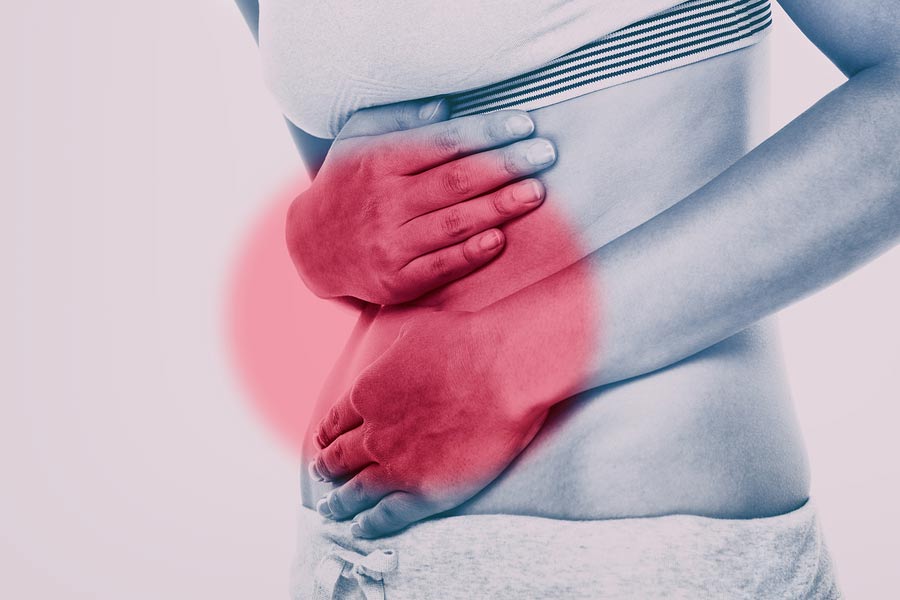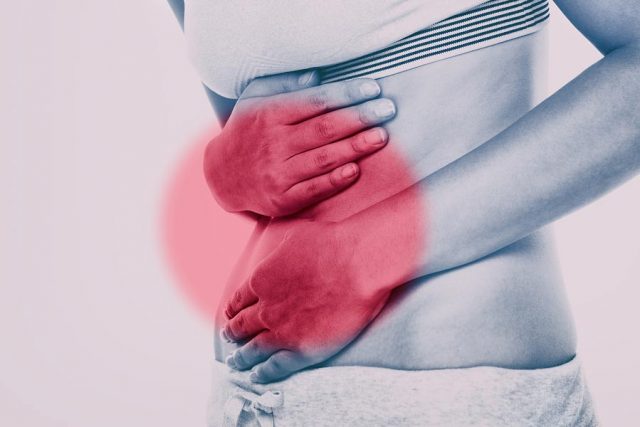
Living with Crohn’s disease means understanding the signals your body is giving off. Recognizing when something isn’t right or when your condition is flaring up can be critical in helping to get through it. The disease can wreck your bowels, and every time you experience a flare, there is a good chance your bowel is weakened and injured. It is frustrating when a flare-up comes on when you believe you have been sticking to your medication regime. However, while there is no concrete proof of what might be causing your flare, there are some foods you should avoid altogether to minimize these debilitating episodes.
What a Crohn’s Flare-up Is Like
Every person reacts differently during a flare-up, but there are a few commonalities among all sufferers of the disease. Pain may be the first sign that your digestive system is reacting to something in an adverse way. Along with pain, you may have nausea, diarrhea and extreme exhaustion. All of these symptoms together may indicate your bowel flaring, or they may be warning signs of harsher things to come. Some people get additional symptoms during a resurgence of the disease, including things like vomiting, incontinence, rectal bleeding and bloating. While these latter side effects are rarer, they can and do occur in those battling Crohn’s.
The Difficulty of Eating Right
There are many things about Crohn’s disease that are frustrating. Probably the most common complaint people express is the uncertainty of what brings on an attack and the discomfort it brings on. When the bowel spasms and can’t handle what it has, it lashes out in a painful and quite frankly embarrassing way. The urgency with which you must clear your bowels makes it challenging to handle a flare-up while traveling or attending a special event. Thus, the frustration people coping with the condition experience is two-fold. First, the unpredictability and urgency with which an attack occurs. The second thing people with Crohn’s express frustration about is trying to control these flare-ups through their diet. Adhering to what you believe is a Crohn’s friendly diet may turn out to be hurting your efforts rather than helping. Explore some of the food types you should avoid.
Foods To Avoid
Your doctor probably prescribed you medication to help control your Crohn’s, and while this is something to continue taking, controlling what you eat is another way to help eliminate flare-ups. Foods that are high in fiber, which usually are meant to stimulate the stomach and digestive system, should be avoided. While it seems counterproductive to stop eating things that help your body, remember that flare-ups occur because the bowel has too much work to do. Therefore eating foods high in fiber may overwork the bowel and send it into a painful flare. Stay away from things like:
- Whole-grain and whole-wheat bread
- Brown rice
- Cereals that have fruit, nuts and a high amount of fiber
- Coconut oil, milk and other varieties
- Nuts
- Raw vegetables and fresh fruit
Steer clear of things that are too fatty, such as fried foods. These have been shown in some sufferers to trigger a flare. Caffeine, nicotine and some over-the-counter drugs like ibuprofen and other NSAIDs can aggravate the bowel and result in a flare.
Foods To Enjoy
If you can eat during a flare-up, it is essential to know that the foods you do consume will not continue to hamper your bowel’s efforts to rid itself of whatever is causing the issue. Make sure you eat slowly so as not to overeat and burden the stomach since it is likely not feeling great with the flare-up raging below. Eat foods like white bread, white rice, grilled or steamed fish and potatoes minus the skin. Bananas may also be eaten in moderation. These foods are considered bland and may help slow the bowel spasms and keep you from triggering another flare.
Riding Out a Flare
When experiencing a Crohn’s flare-up, you may be able to help ease the symptoms until whatever triggered it processes through the bowel. When you use the bathroom, do not strain or push. This may cause fissures in the anus, which may cause other symptoms to develop. Getting adequate rest and participating in relaxing, but light exercise may also help ease the burden. You may also be able to take acetaminophen for the pain. Check with your doctor to ensure that what you are doing will help and not hamper your body’s efforts to clear itself.
As frustrating as Crohn’s disease is, there are some ways you can manage it. Over time, you and your doctor will work out a way you can control the symptoms and flares that are going to occur. By avoiding certain foods entirely from your diet, and consuming others in moderation, you may be able to help stave off further irritation of the bowel for that much longer. Remember that even if it has been a while since your last flare-up, it doesn’t mean you should slack off on your care. These nasty bouts may surface at any time, and the more consistent you are with your diet and medication regime, the better you will be at avoiding them.
Did you find this article helpful? Join us at HealingWell for support and information about Crohn’s Disease. Connect and share with others like you.




